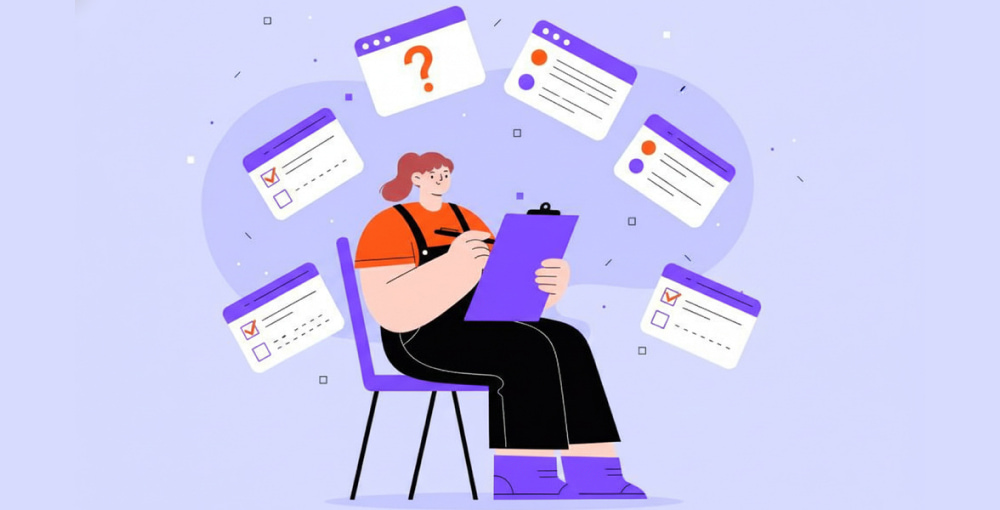Definitive Guide to Sociopathy Quizzes: Purpose, Accuracy, and Responsible Use

Test if You Are a Sociopath or Not
Get StartedWhat a Sociopathy-Oriented Quiz Really Measures
Sociopathy, often discussed under the clinical umbrella of antisocial personality traits, involves patterns such as chronic rule-breaking, low remorse, superficial charm, and manipulative conduct. A well-constructed quiz aims to approximate tendencies across domains like empathy, impulse control, risk-taking, deceitfulness, and responsibility. Rather than diagnosing, these tools provide directional insight, signaling whether certain behaviors cluster in ways that merit reflection or conversation with a professional. Good instruments prioritize clarity over sensationalism and avoid stigmatizing language, so readers can engage without fear or shame.
Many readers arrive curious about how an online are you sociopath quiz frames traits like remorse, deception, and risk acceptance. Solid questionnaires draw on established psychometric concepts, using neutral wording, reverse-scored items, and consistency checks to reduce noise. They also explain what results cannot tell you, emphasizing that context matters: missing sleep, acute stress, or alcohol use can skew how you answer. When items probe for callous-unemotional features or chronic irresponsibility, they should do so indirectly to minimize defensive responding and encourage honest self-reflection.
In practice, the most useful assessments balance breadth and brevity. Too few items yield shallow insights, while sprawling inventories can cause fatigue and careless responding. Look for clear instructions, reading-level appropriate phrasing, and examples that mirror everyday situations. Ethical tools add guidance on next steps, including self-care ideas and pathways to professional evaluation. Ultimately, the value lies in prompting careful introspection, not in delivering a verdict, and in helping you translate patterns into healthier choices.
- Focus areas commonly probed: empathy, deceit, impulsivity, aggression, accountability.
- Design features that matter: item balance, anonymity, transparent scoring, and disclaimers.
- Intended purpose: education, self-awareness, and motivation for constructive change.
How an Assessment Works and Its Benefits
Most sociopathy-oriented quizzes present a series of statements about habits, feelings, and interpersonal behavior, typically answered on a Likert scale from “strongly disagree” to “strongly agree.” Scores aggregate into domains that highlight possible strengths and vulnerabilities. When crafted with care, such tools promote self-observation, making it easier to notice patterns that might otherwise feel invisible in day-to-day routines. This can catalyze boundary-setting, conflict reduction, and healthier communication with partners, friends, or colleagues.
In practical terms, someone exploring options may compare a brief screener with a longer inventory by trying a reputable are you a sociopath or psychopath quiz that clarifies scope, tone, and expected time. The best experiences supply context alongside results, suggesting reading lists, reflective prompts, or techniques like journaling and values clarification. Educational models also describe limitations up front, encourage balanced self-judgment, and invite users to consider outside perspectives, such as feedback from trusted confidants.
Benefits extend beyond personal insight. Leaders can use learnings to improve team dynamics, especially around accountability and empathy in high-pressure settings. Relationship partners can evaluate recurring flashpoints, such as defensiveness or manipulation during conflict. Students in psychology, counseling, or criminology can study item-writing techniques and bias-reduction strategies. Although these tools are not diagnostic, they can be a springboard to deeper exploration, including professional evaluation when concerns persist or escalate.
- Key benefits: self-awareness, structured reflection, and practical next steps.
- Helpful features: plain-language feedback, trait-domain breakdowns, and privacy safeguards.
- Use cases: personal growth, education, leadership development, and relationship health.
Scoring, Result Types, and What to Do Next
Scoring approaches vary, but most quizzes translate item responses into domain scores and an overall index. High scores in certain areas, such as callousness, impulsivity, or disregard for norms, may suggest patterns worth examining with nuance. Responsible feedback avoids labels or pathologizing language, instead framing outcomes as signals that invite action. If results indicate elevated tendencies, it’s wise to reflect, seek input from trusted people, and consider consultation with a licensed professional who can provide a comprehensive assessment.
If you want a quick baseline, you might begin with a safe, educational are you a sociopath test and then reflect on how scores map to behavior. Consider whether findings appear consistently across contexts: work, family, close relationships, and high-stress moments. A single snapshot is less informative than patterns observed over weeks. It also helps to note protective factors, such as empathy exercises, stress management, sleep hygiene, and accountability routines, that can mitigate risk-taking or manipulative impulses.
To make this easier, use the table below to align typical result bands with constructive next steps. Remember that any automated score is only a conversation starter and not a clinical determination.
| Result Band | What It May Indicate | Constructive Next Steps |
|---|---|---|
| Lower | Few markers of callousness or chronic rule-breaking; generally prosocial tendencies. | Maintain healthy habits; continue empathy-building and stress management practices. |
| Moderate | Some impulsivity or limited empathy in stressful contexts; situational challenges. | Track triggers, practice assertive communication, and consider coaching or workshops. |
| Higher | Frequent disregard for norms, manipulative behavior, or low remorse across settings. | Seek professional evaluation, build accountability structures, and prioritize safety. |
- Document observations over time to reduce the impact of one-off moods.
- Invite supportive feedback from people who see you in different situations.
- Focus on actionable habits rather than fixating on labels.
Limitations, Ethics, and Misconceptions
Internet quizzes are inherently limited: they rely on self-report, can be influenced by mood or impression management, and often lack formal validation. Ethical tools state these limits clearly and urge readers to avoid self-diagnosis. It’s also easy to overinterpret results when you’re anxious or seeking certainty, so treat outcomes as hypotheses to test, not verdicts to accept. Reputable resources promote nonjudgmental language, harm-reduction thinking, and links to supportive services.
Clarity improves when creators disclose the evidence behind their items and explain how are you a sociopath questions were adapted from validated research. Transparent instruments describe populations used in development, known biases, and confidence intervals when available. They also avoid glamorizing harmful behavior or conflating sociopathy with cinematic villainy. Nuanced education differentiates persistent, cross-situational patterns from occasional lapses under stress, and it highlights protective influences like stable relationships, purposeful work, and community support.
Common misconceptions include the belief that all people with antisocial traits are violent, that empathy cannot improve, or that change is impossible. In reality, skills like perspective-taking, impulse delay, and values-driven decision-making can be practiced and strengthened. Ethics demand that we balance accountability with respect and safety, recognizing that people are more than their most difficult moments. When in doubt, prioritize compassion, clear boundaries, and professional guidance.
- Limitations: self-report bias, mood effects, and sampling differences.
- Ethics: informed consent, privacy, non-stigmatizing feedback, and safety planning.
- Misconceptions: sensationalism, fatalism, and one-size-fits-all labels.
Preparing to Take a Quiz and Healthy Next Steps
Before you answer items, set yourself up for honest responses. Choose a quiet space, silence notifications, and plan enough time to complete the quiz without rushing. Reflect on your recent week and your typical patterns, not your best or worst day. Consider how you act across settings, at home, at work, online, and under pressure, so your answers represent a broad sample of behavior rather than a single situation.
Before clicking start, consider why you’re taking a reputable are you a psychopath or sociopath quiz and what you plan to do with the insights. It helps to precommit to constructive steps, such as journaling about triggers, asking a trusted friend for perspective, or booking a consultation with a licensed clinician. If results are unsettling, pausing to breathe, walking outside, or practicing grounding exercises can prevent catastrophic thinking and encourage measured follow-through.
After finishing, translate findings into specific habits. If impulsivity scored high, experiment with a 10-minute delay before major decisions. If empathy felt low, practice reflective listening or daily gratitude notes. If manipulation surfaced, create an accountability pact with someone who can call you in, not just out. Small, repeatable actions compound over time, and aligning behavior with personal values typically yields more stable gains than chasing quick fixes.
- Environment: quiet, uninterrupted, and emotionally neutral if possible.
- Mindset: curious, compassionate, and open to feedback.
- Follow-through: concrete habits, supportive accountability, and professional input when needed.
FAQ: Common Questions About Sociopathy Quizzes
Do these quizzes provide a diagnosis?
No, online tools cannot diagnose any disorder, and results should be viewed as educational. A licensed professional uses interviews, history, collateral reports, and validated instruments to reach clinical conclusions. Treat scores as conversation starters that inform reflection and next steps.
How accurate are brief online assessments?
Accuracy varies widely, depending on item quality, validation, and honesty in responding. Short screeners can offer directional insights, while longer instruments may capture nuance. Look for transparent methodology, plain-language limitations, and references to supporting research.
What should I do if my results are high?
Begin with self-care and reflection, then consider consulting a qualified clinician for a fuller evaluation. Focus on specific behaviors you can change, such as improving impulse control, practicing empathy skills, and setting clear boundaries in relationships. Safety and accountability should guide your plan.
Can these quizzes help my relationships?
They can highlight patterns, defensiveness, deception, or emotional detachment, that affect partners and friends. Share insights respectfully, invite feedback, and create small, trackable commitments together. Growth accelerates when you combine self-insight with reliable follow-through.
Are there differences among quiz types?
For comparison shoppers, a balanced roundup can show how a modern are you psychopath or sociopath quiz differs from legacy pop-culture tests. Consider length, scientific grounding, clarity of feedback, and guidance on next steps when choosing a tool, and avoid options that sensationalize or stigmatize.
